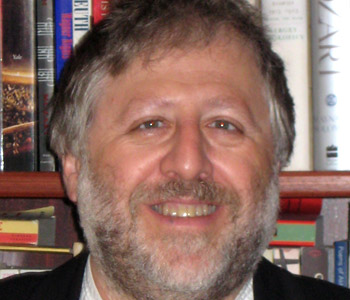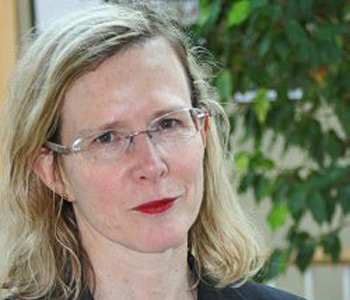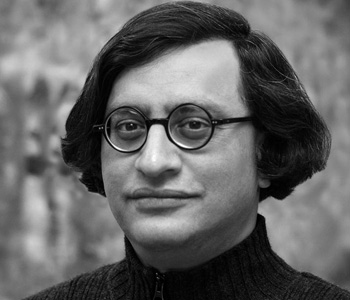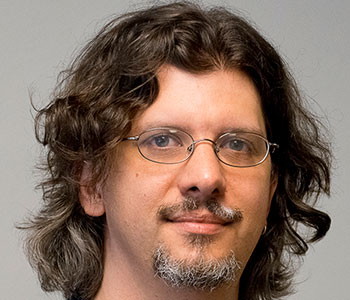Michael A. Ryan
A Kingdom of Stargazers: Astrology and Authority in the Late Medieval Crown of Aragon
Cornell University Press
232 pages, 6 x 9 inches
ISBN 978 0801449840
In A Kingdom of Stargazers I analyze the nebulous and tendentious practice that astrology occupied within the culture of the later Middle Ages, a period characterized by profound and multiple crises. Apocalyptic rhetoric and imagery were rife within fourteenth- and fifteenth-century European society, as people sought answers to the various crises they faced, and astrology, which could be used in their attempts to divine the course of future events, was just one way for people to make sense of these uncertain times. However, due to the fuzzy quality of astrology, as it was a discipline that overlapped the realms of science, magic, and faith, of heresy and orthodoxy, such an interest was deeply problematic.
I divide my book into two halves.
The first half sees me investigating the liminality of astrology in the Middle Ages to ascertain why exactly it was so contentious and problematic. The first chapter regards what traditional authorities, such as the fifth-century Augustine of Hippo or the thirteenth-century Thomas Aquinas, had to say about the nature of astrology and divining the future and how their positions would be important for later critics of astrology. The second chapter regards the rhetorical strategies used by medieval critics to denigrate people’s interest in astrology, by which they sought to portray those devotees as foolish or simple. In the third chapter, I look at contemporary medieval Europeans’ perceptions of Iberia as a land of magic, due to the plethora of Jewish and Muslim intellectual centers throughout the peninsula that produced sidereal texts in great numbers.
The second part of the book uses the Crown of Aragon, the capital of which was Barcelona, as a case study because it was a center of astrological and astronomical text production during the later Middle Ages that grappled with the problems plaguing the rest of Europe. I tie together the themes I bring out in my book’s first half to show how they resonate within the Crown of Aragon in particular. Chapter four looks at one particularly strong king, Peter “the Ceremonious,” and how his interest in astrology and astronomy did not raise an eyebrow, due to his traditional ways of applying monarchical authority. This was in contrast to his son, John “the Hunter,” who preferred astrology and magic, trendy fashion and music, to dealing with pressing political and theological matters, thus earning him significant criticism. The sixth and final chapter sees the ascension of a particularly pious king, Martin, the younger brother of John, to the throne of the Crown of Aragon and how he distances himself from the perceived excesses of his older brother’s court.
In my epilogue, I take such recognizable figures as Christopher Columbus and Ronald Reagan, separated by centuries, to show how the medieval themes I brought up resonate into the early modern and modern eras alike.
This is my first single-authored monograph and, as such, is a direct outgrowth of the dissertation that I defended from the University of Minnesota’s Department of History in 2005. In my dissertation, I studied various late medieval prophetic and divinatory texts. I noticed a close linking of astrology with apocalyptic expectations, throughout, and wanted to elaborate on that connection further in my book.
But the seeds of this particular project were sown back in 1997, while I was a graduate student at Western Michigan University, While conducting research on the effects of the Black Death in fourteenth-century Rome for a graduate seminar paper, I encountered the scholarship of Robert Lerner, who mentioned the presence of a prophetic treatise by a fourteenth-century Franciscan, John of Rupescissa, imprisoned under suspicion of being a sympathizer to a group of heretics. When I saw that Rupessica had written an apocalyptic treatise about the imminent arrival of the Antichrist, I knew that was a subject that would appeal to me for a dissertation topic.
Then I chose to study at the University of Minnesota for my doctoral work because I wanted to work with a top-notch group of scholars affiliated with the Department of History, the Center for Medieval Studies, and the Center for Early Modern History, as well as work under the direction of perhaps the two premier scholars of premodern Spain, William D. Phillips, Jr. and Carla Rahn Phillips.
As I began revising my dissertation for publication, I noticed how prevalent astrological imagery and theories were referenced in prophetic and divinatory treatises. I wanted to delve deeper into that specific aspect surrounding late medieval divination and thus my book was born. I tried to write a book that would appeal to both scholarly and lay readers, one that could be used effectively in advanced undergraduate and graduate seminars in colleges and universities, but that could also be picked up, read, and digested by the educated general reader. I think that many of the themes and criticisms I address in A Kingdom of Stargazers will resonate with both groups of readers.
The third and fifth chapters might be particularly engaging to the reader.
The fifth chapter, “To Condemn a King,” encapsulates perfectly the many intellectual points that I take within my study.
In the third chapter, “The Iberian Peninsula: Land of Astral Magic,” I discuss the medieval conception of the Iberian peninsula as a land replete with astral magic and privileged knowledge and briefly analyze the (in)famous medieval text of astral magic known as Picatrix.
I hope that my book encourages readers to think about the interest in, and implications of, astrology within medieval and early modern culture. I end the book with the anecdote about Nancy and Ronald Reagan’s interest in astrology after the assassination attempt against Reagan not to make a political statement, but rather to provide a relatively recent and wholly relevant example of how the occult sciences and political power intertwine even today. One friend who had finished my book quipped, “Astrology and the ruling elite; it’s not just for the Reagans anymore.” And that, in my opinion, succinctly sums up the heart of the matter. What happens when powerful people engage with astrological matters to gain sense of a world in crisis? How does their interest with that discipline intersect with how they construct their authority? And how does their interest generate approval or opprobrium from others?
Moreover, I also hope that my study inspires other scholars, whether they like and agree with my book’s argument or not, to take up the pen and address the issue regarding how the tendentious disciplines of astrology and alchemy, among other occult arts, were prevalent and conceptualized in the later Middle Ages and early modern eras. Some people tend to impose false boundaries upon periods of history that simply do not hold up to careful scrutiny. The false dichotomy between science and magic, for instance, is one that people routinely bring up when they establish arbitrary boundaries between the “medieval,” and therefore supposedly “superstitious,” past in contrast with the “modern” and “rational” present.
One of the best examples that I use to bring this point home for my students is the figure of Isaac Newton. Undoubtedly, he is a luminary within the history of science and deservedly so, as the beauty and brilliance of his Principia Mathematica. Yet he also wrote extensively about apocalyptic and alchemical matters alike, and in no small quantity. Apocalypticism, alchemy, and mathematics all occupied a space in Newton’s brilliant mind in which he sought answers to the fundamental mysteries of the cosmos. Put differently, the three disciplines were not at odds with each other and should not be seen as such, lest a disservice be done to the historical reality in which these disciplines were understood. I believe that my book contributes to this larger understanding by positioning it farther back in time during a period of intense crisis, but also profound change.




We don't put paywalls. We don't distract you with ads. We don't sell your data.
Please help to keep this running!